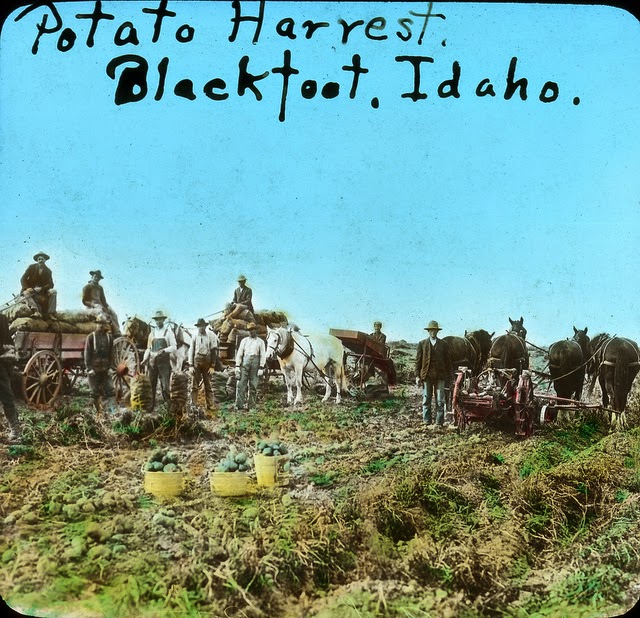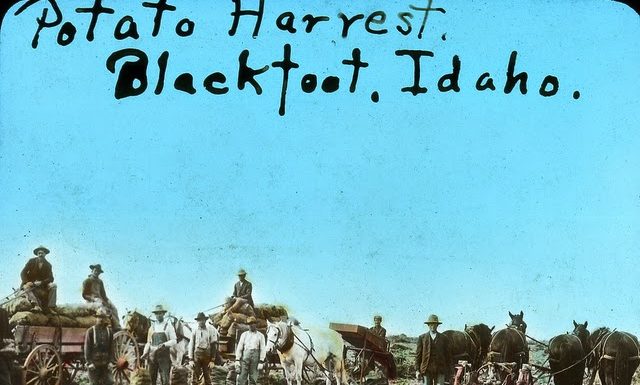(Note: this was originally on my tax blog CreativelyAccounting.com, but I moved it over here, since it is not tax related)
Last week, while I was trying to shift over to Goodreads (Amy linked my Amazon account with her Shelfari account a couple years ago, which recently resulted in my Shelfari account disappearing), I wrote a review of the recently read Beautiful Creatures as a cathartic release. Based on my wonderful wife’s prompting, I’ve decided to post a modified version below.
When I was on a business trip last year, I was bored enough to watch the movie adaptation of Beautiful Creatures. Despite its quirks, I thought it was a decent enough movie. And since movies are typically worse than their source material, I figured the book could only improve on the film.
Big mistake. They should have titled the book “Southerners Are All Below Our Enlightened Egos.” The plot, when it came up at all, felt like a superficial device used to allow the authors to criticize the South. I should have stopped in the first chapter when our surprisingly effeminate protagonist haughtily declared that his family called it the “Civil War” instead of ignorant titles that all the pig-headed buffoons in his town bestowed upon the war. But since I’m a West Coast Boy, and I do call it the Civil War, I kept going.
It got much worse, and much more self-righteous. If the book had just been criticizing a random small town that happened to be in the South, that’d be fine. But it kept elaborating with comments like “in my town, and all the South,” or picking at traits that were distinctly Southern, like the accent. Having two Southern parents who lived in a small Southern town nearly all their lives force their child (who is growing up in that same small town) to speak the Standard English dialect spoken over a thousand miles away doesn’t make them good people–it makes them pretentious pricks. It’d be like finding out your co-worker with the English accent not only had never left Idaho, but their parents and grandparents hadn’t either.
Big mistake. They should have titled the book “Southerners Are All Below Our Enlightened Egos.” The plot, when it came up at all, felt like a superficial device used to allow the authors to criticize the South. I should have stopped in the first chapter when our surprisingly effeminate protagonist haughtily declared that his family called it the “Civil War” instead of ignorant titles that all the pig-headed buffoons in his town bestowed upon the war. But since I’m a West Coast Boy, and I do call it the Civil War, I kept going.
It got much worse, and much more self-righteous. If the book had just been criticizing a random small town that happened to be in the South, that’d be fine. But it kept elaborating with comments like “in my town, and all the South,” or picking at traits that were distinctly Southern, like the accent. Having two Southern parents who lived in a small Southern town nearly all their lives force their child (who is growing up in that same small town) to speak the Standard English dialect spoken over a thousand miles away doesn’t make them good people–it makes them pretentious pricks. It’d be like finding out your co-worker with the English accent not only had never left Idaho, but their parents and grandparents hadn’t either.
 |
| I’m pretty sure I just used a stereotype to justify a dialect difference. |
Ironically, the dialect was one of the things I liked about the movie. We have so few shows portraying Southerners in a positive light, and the fact that a movie could be set in the South without making a big deal about it seemed like progress to me.
I think where I finally got completely fed up with the politics was when the main character made an off hand remark about having to write a pro-slavery essay because of, and I’m paraphrasing here, some future liberal paper he would write in college. This was about three hundred pages in, a complete throw away line, doing nothing to move forward plot, characterization, or humor. Suddenly, we switch from not only making fun of the South, but to equating all conservatives with slave-owners.
Awesome.
After that, I checked the back cover to make sure it wasn’t secretly written by MSNBC.
The plot wasn’t great, either. The main points weren’t bad, albeit completely unoriginal, but half of the story was pressed forward by “the people we trust most know what’s going on, but they refuse to tell us.” While keeping secrets is almost always a contrived way to advance a story, it’s even worse when one of the secrets being withheld is *spoiler alert* that the love interest is witch, and the main character will die if they have sex. So of course no one thinks to mention this to them before allowing the two to hang out in her room unsupervised for days on end.
And no, apparently they don’t have sex (not much of a spoiler. There are somehow more books in this awful series, which, unfortunately, indicates that the main character does not die). But when you lock two hormonal teenagers in a room together for hours on end, where talking comes in a distant third on the activities roster behind “making out” and “feeling their bodies intertwine,” believing they won’t have sex would get about as good of odds in Vegas as “the sun won’t rise tomorrow.”
After that, I checked the back cover to make sure it wasn’t secretly written by MSNBC.
The plot wasn’t great, either. The main points weren’t bad, albeit completely unoriginal, but half of the story was pressed forward by “the people we trust most know what’s going on, but they refuse to tell us.” While keeping secrets is almost always a contrived way to advance a story, it’s even worse when one of the secrets being withheld is *spoiler alert* that the love interest is witch, and the main character will die if they have sex. So of course no one thinks to mention this to them before allowing the two to hang out in her room unsupervised for days on end.
And no, apparently they don’t have sex (not much of a spoiler. There are somehow more books in this awful series, which, unfortunately, indicates that the main character does not die). But when you lock two hormonal teenagers in a room together for hours on end, where talking comes in a distant third on the activities roster behind “making out” and “feeling their bodies intertwine,” believing they won’t have sex would get about as good of odds in Vegas as “the sun won’t rise tomorrow.”
Add to that some completely terrible actions by characters we’re supposed to like. For example, in one scene, the entire town has gathered together in some sort of witch hunt. The kind, intelligent, motherly librarian walks out on the town of ‘ignorant hicks,’ shouting to the crowd that they aren’t even smart enough to find a book glued to their hand (again, paraphrasing). It would have been about as much in character to have her say “see you later, b**tches” while waving to the crowd with only her middle fingers extended.
Or, in that same scene, when the “smartest man in town” comes to save the day, you expect him to resolve the situation with logic or legal scholarship (the scene was totally set up as such). Instead he lists off several town members’ darkly held secrets, which he discovered through canine voyeurism (or something weird like that). I guess I missed the philosophy class where they taught that blackmail is the highest form of intelligence.
Also, based on my apparent witch-hunting, slave-owning, fear-mongering conservative past, threatening to blackmail and entire town based on information you acquired through illicit means generally leads to pitchforks and torches, not quiet appeasement. But maybe I just don’t grasp Southern ignorance like the enlightened authors.
Amid all this, the plot drags like crazy. In Twilight, at least something happens every twenty pages or so. In this book, we’re lucky if when it’s every hundred.
If the authors had cut down at least 100 pages and removed all the politics, it could have been a halfway decent book, which is exactly what happened in the movie. Instead we’re subjected to rambling drivel.
I feel sorry for the trees that had to give their lives to deliver us such a contrived mess. Whatever consciousness the pages still have probably look on toilet paper with envy.
Needless to say, I won’t be writing a review of book two.
If the authors had cut down at least 100 pages and removed all the politics, it could have been a halfway decent book, which is exactly what happened in the movie. Instead we’re subjected to rambling drivel.
I feel sorry for the trees that had to give their lives to deliver us such a contrived mess. Whatever consciousness the pages still have probably look on toilet paper with envy.
Needless to say, I won’t be writing a review of book two.
